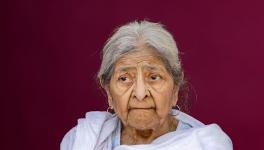Why India Should Consider Legalising Active Euthanasia

Image Courtesy: Picpedia
Karnataka’s implementation of the Supreme Court’s directives on ‘mercy killing’ is a significant step toward ensuring dignified death. This development is rooted in the interpretation of ‘right to life’ as a right to ‘dignified’ life. The SC’s landmark judgment in 2018 recognised a person’s right to die with dignity, allowing terminally ill individuals to opt for passive euthanasia and execute a living will to refuse medical treatment. This ruling has paved the way for a more compassionate approach to end-of-life care in India.
Euthanasia, having Greek roots, means “good death”. However, it today refers to any action that knowingly results in the death of a person suffering from a painful and incurable disease, as long as the action is carried out to be merciful.
Passive euthanasia involves withholding or withdrawing medical interventions that might prolong one’s life, allowing the patient’s disease to run its natural course. This approach is distinct from active euthanasia, which involves intentionally causing the patient’s death, by practices such as administering a lethal drug.
“Is active euthanasia morally permissible?” This inquiry opens up a complex web of moral considerations, inviting us to examine our values, principles, and understanding of human nature. If so, “what do we base such decisions upon?” underscores the importance of establishing a clear moral framework for guiding our choices. This framework must take into account the intricacies of human experience, the nuances of suffering, and the complexities of decision-making at the end of life. Failing to engage with and resolve such questions, we will run the grave risk of leaving undeveloped a significant facet of human nature and self - the moral aspect.
Read Also: Establishing the Procedure to Die
Thinkers are divided in their position on the ethical permissibility of euthanasia. Is killing someone permissible, under any circumstance, even from compassionate grounds? Is “letting someone die” morally less significant than “causing death” to someone? The conservative position on these questions has been set out mostly by natural law ethicists.
Natural law theory posits that human life has inherent value and dignity, making it a fundamental good that should be respected and protected. This value is discovered through reflection on human nature and our inherent inclinations, which include the desire to preserve and protect life. Since euthanasia involves the intentional destruction of human life, it is considered immoral and contrary to the natural law. Therefore, it would be wrong for a doctor to intentionally end the life of a terminally ill person, even if the goal is to alleviate suffering.
A significant challenge to natural law theory is the lack of clarity on why human beings have a moral obligation to follow their natural inclinations and it would demand a more robust moral framework. The natural law approach posits that moral laws are based on God’s commands, and that following natural inclinations is a way of fulfilling divine commands. In fact, many religious traditions prohibit active euthanasia explicitly based on a scriptural divine-command ethic. For example, the Judeo-Christian tradition opposes euthanasia for the commandment “Thou shall not kill”.
Does the divine command theory lead to moral arbitrariness, where moral laws are based solely on God’s will, rather than on reason or human nature? Can natural law theory be developed in a way that is independent of theological assumptions, and that provides a secular basis for moral obligations? Yet what can such divine command approaches to euthanasia provide for non-believers?
Societies can develop meaningful conceptions of suffering from various perspectives, including religious ones. However, it’s essential to respect individuals’ freedom to choose their own beliefs and values. Individuals should not be forced to subscribe to a particular worldview or belief system, especially when it comes to matters of endless suffering and death.
James Rachels, a consequentialist moral philosopher, emphasises the role of compassion in justifying euthanasia. Rachels argues that active euthanasia can be justified as a means to end the immense suffering of terminal patients. His theory highlights the extreme pain and suffering that some terminal patients endure, which can be difficult for others to comprehend. By providing an end to suffering, euthanasia can be seen as a compassionate response to the patient’s plight.
He further argues that at least in some cases, active euthanasia can be morally justifiable, as it promotes the best interests of everyone concerned and violates no one’s rights. How can it be wrong to do an action that is merciful, that benefits everyone concerned, and that violates no one’s rights?
It is important to notice that Rachels qualifies his argument with the proviso that “no one’s rights” – including the right of the patient - should be violated by an act of euthanasia. It would require that the authorities ensure that either the patient expresses, or has earlier expressed, or in good faith would have expressed a desire to die in the present condition. It implies that the patient is neither against, nor would have resisted mercy killing if she was conscious and expressive. This proviso would rule out involuntary euthanasia as murder.
Euthanasia can be argued for, not only from a consequentialist perspective but also from a deontological approach developed by German philosopher Immanuel Kant. One problem with utilitarianism is that it assumes that only consequences determine what is morally permissible; actual consequences are often hard to predict.
The deontological approach does not rely on consequences. Rather, it emphasises the universalisability of actions. It argues that we should act only on rules that can be applied universally. That is, we should behave as we would be willing to have everyone behave. Thus, if we are not willing for others to apply the rule to us, we ought not apply it to them.
Implication of this moral position to the question of euthanasia is fairly obvious. What would one choose -- if one had an option to -- a painless death from a fatal injection or a death after suffering an endless and torturous affliction? It is hard to believe that any sane person, when confronted by these possibilities, would choose to have a rule applied that would force upon him or her the second option.
Deontology allows individuals to make choices about their death, rather than being forced into a prolonged and painful dying process. It appeals to our capacity for compassion and empathy, encouraging us to consider the suffering of others and the importance of alleviating it. It argues that we should not impose a rule on others that we would not want applied to ourselves, that is, “Do unto others as you would have them do unto you”.
Kant’s moral philosophy emphasises the importance of universal moral laws, which are based on reason rather than personal preference or cultural variation. From this perspective, euthanasia could be argued for as a morally permissible option.
The Kantian approach also requires that doctors gain informed consent, that is, patients are fully informed and capable of making decisions about end-of-life care. None of us would want to be put to death against our will. This ensures that patients are treated as ends in themselves, rather than means to an end, which safeguards against non-voluntary euthanasia, where patients might be put to death against their will.
Moral theories remind us of our moral obligations to treat human beings with dignity and respect. Natural law emphasises the inherent value and dignity of human life. It encourages careful deliberation and justification for ending life. Consequentialism recognises that the value of life may be outweighed by the evil of pain in certain cases.
Rachels’ Proviso-Utilitarianism stresses the importance of securing informed and voluntary consent from the patient before administering euthanasia. Kantian ethics reminds us of our moral obligations to treat others with dignity and respect, particularly in situations where we would want similar treatment for ourselves.
Legalisation of passive euthanasia in India is a significant step toward ensuring dignified death for its citizens, as the SC has recognised the right “to die with dignity” as a fundamental right under Article 21. There are strong arguments to be made for considering active euthanasia as well from various moral positions. However, there are practical concerns about the potential misuse of euthanasia, particularly in a country like India where corruption and exploitation are significant issues.
Before legalising active euthanasia, the State and its stakeholders should also ensure that the legal provisions are not misused to traumatise, victimise, or murder vulnerable individuals, such as the elderly or those with disabilities. Clear guidelines and regulations should be established.
Kumari Sunitha V is Assistant Professor and Head, Department of Philosophy, Madras Christian College, Tamil Nadu; Bins Sebastian is Assistant Professor, Department of Philosophy, Madras Christian College, TN. The views are personal.
Get the latest reports & analysis with people's perspective on Protests, movements & deep analytical videos, discussions of the current affairs in your Telegram app. Subscribe to NewsClick's Telegram channel & get Real-Time updates on stories, as they get published on our website.
























